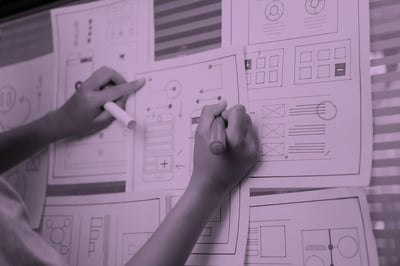The Pathway to Excellence | Learn | Academic Development
Academic Development Program
We need to build our academic program – how we manage our processes of enrolment or entry into courses and how we design them to match our best understanding about what we enjoy and what we are good at doing.

We should all aspire to be lifelong learners. One of the central components of this process is our academic program, in particular the path we choose to follow with our tertiary education. No matter where we find ourselves and what we find ourselves doing it is important that we undergo a process of understanding how our aspirations, strengths and past performance can be brought together to put us on a path to success and fulfilment.
The value of tertiary education cannot be understated. From a learning perspective, the diversity of ideas, theories and new skills we can come face to face with in a tertiary environment represents a unique opportunity to broaden our horizons through interrogating our opinions, values and interests in life. On a tangible level, learning, graduating, and earning the qualification of a degree, a diploma or a trade certificate is uniquely important in the context of modern day work. There are things that employers value highly and will be useful in our professional lives.
Knowing where to look to develop your academic program requires process and structure. As usual, it should start with an inward investigation. This involves identifying your tangible and intangible skills. Are you a people person? Are you a talented mathematician? Are you an outspoken debater? You need to look to markers of your competencies in your own life, and even ask those around you what they think you are good at. Your teachers, parents, friends and role models will have unique and personal perspectives on where your strengths lie and this can be very helpful to the process.
“The beautiful thing about learning is that no one can take it away from you.”
BB King
Next, we need to consider how this aligns with your aspirations and goals in a professional context. This requires some work on your part to research how your strengths fit into certain professions. Alternatively, it means identifying the strengths that are important for the professions you are interested in, in order to develop them further. Again, asking for the advice of those with relevant lived experience such as parents, teachers and role models can be very useful in helping you navigate this territory.
There are two important things to remember. First, it's fine to not have a perfect answer. It’s hard for any of us to envision where we might be in ten years, let alone twenty or thirty years from now. Secondly, we must accept that our expectations and ambitions will, and should, change over time. As the patterns of life move around us, we adapt and grow to work with them. We need to work out what we're good at doing and what we enjoy, what works and what doesn't work for us. Many people change their tertiary education and career path throughout their life. Both of these things are normal and natural. It's important, however, to engage in a process of identifying which professions we are interested in so that we can get make progress on our journey.
All colleges, universities and other tertiary institutions will have different requirements. If you have a clear understanding of where you want to study, what you want to study, or what profession you want to end up in, then you will be better able and more likely to reach that goal. Research the requirements for your target, plan how to fulfil them, and work towards achieving them. Understand and familiarise yourself with the story that you want to write. Finally, it’s important to remember that our performance at school and in tertiary education is not a concrete determinant of what we can and cannot achieve in our life, nor will it prescribe narrowly what professions we can and cannot do. Hard work and perseverance will count for much on The Pathway to Excellence.
We can contemplate our Academic Program by considering the following questions:
Do I actively research what is required for the professions and career paths that interest me?
-
Have I sought advice from many people I respect and trust in thinking about the focus of my educational planning?
-
Do I appreciate that my future career will take many twists and turns and that I will need to engage in lifelong learning to flourish and be successful?
-
Do I know how to research academic offerings that best build on my academic preparation and background, meet program requirements, and reflect my personal goals and ambitions for my education?
-
Do I make sure that I create opportunities for courses that enrich me and provide for a broader education, as much as it is possible to do so?







